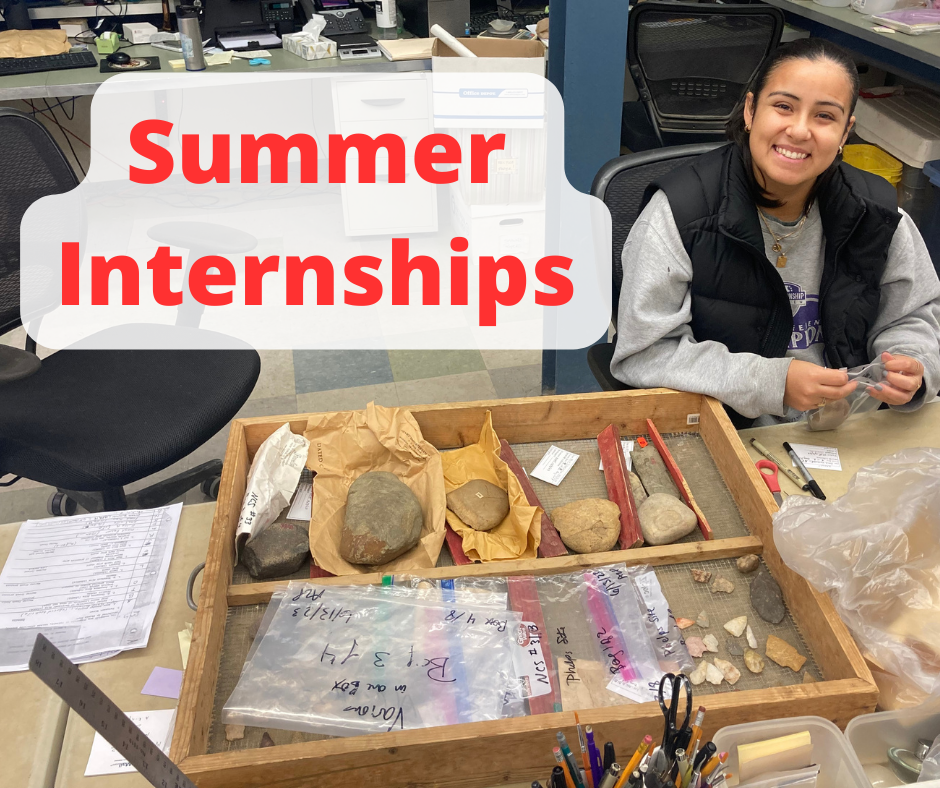Summer 2024 Internship Information

Introduction:
Anne Arundel County’s Cultural Resources Section in conjunction with The Lost Towns Project is offering two internship positions in Archaeology with a focus on laboratory methods and collections management. The internship will be based in Edgewater, MD with some travel required.
This internship is designed to be educational in nature and is best for undergraduate students seeking hands-on experience in a wide variety of archaeological topics in a local government/non-profit setting. Graduate students may still apply but are invited to contact the internship coordinator in advance.
Internship Description:
Interns will learn the basics of archaeological labwork and collections management by participating alongside professional archaeologists and volunteers in the lab and at curation facilities. There may be limited opportunities for fieldwork, but there is no definite fieldwork planned at this time.
With training, the intern will be required to:
- Participate in artifact processing (washing, labeling, cataloging, and curation preparation) at the Anne Arundel County Archaeology Laboratory at 839 Londontown Road in Edgewater, MD (60% of time);
- Conduct collections assessment of existing archaeological collections in Edgewater and Glen Burnie, MD, and record them in a collections management database (30% of time);
- Attend field trips to regional archaeological sites, labs, and curation facilities (10% of time);
- (Optional) Assist with public programs on weekends;
- (Dependant on availability) Participate in Phase I and Phase II excavations at one or more archaeological sites across Anne Arundel County;
- Work with other interns and volunteers as needed;
- Contribute to blog, social media, and/or webpage posts; and
- Write a final report on their activities.
Learning Objectives:
By the end of the internship, the intern should be able to:
1. Conduct laboratory processing of artifacts (washing, labeling, cataloging, and curation preparation) to Maryland State Archaeological Standards;
2. Assess curated archaeological collections (artifacts and paper/digital records) as part of a management plan; and
3. (Dependant on availability) Perform archaeological fieldwork techniques, including excavation, artifact identification, and record keeping.
Qualifications:
- Students who can pursue academic credit through their institution are strongly preferred. Students unable to pursue credit or recent graduates will be considered.
- Students who are pursuing a major or minor in Anthropology, Archaeology, Historic Preservation, or Museum Studies are preferred.
- Applicants should have some familiarity with archaeology and/or local history, either through coursework or extracurricular activities.
- Interns should be self-motivated and able to work both independently and in small teams with intermittent supervision.
- Interns should possess basic computer skills, organization skills, record keeping, and attention to detail. They should be comfortable working in office, laboratory, and outdoor environments.
- Interns will need independent transportation; work sites are not accessible via public transit.
Duration:
Interns will be expected to work three days a week for a total of 150 hours. A schedule will be coordinated between the student and internship coordinator. Lab days are generally 6 hours long; field days can be 7 hours long. Most interns complete the internship in 9-10 weeks. The internship will start in late May or early June and must be completed by August 31, 2024.
Compensation:
College interns will receive a stipend of $1,000 upon completion of 150 hours.
For More Information or To Apply:
To apply, email a cover letter and a resume or CV to Drew Webster at [email protected]. Applications are due April 21, 2024. Candidates will be chosen and notified by May 3.
